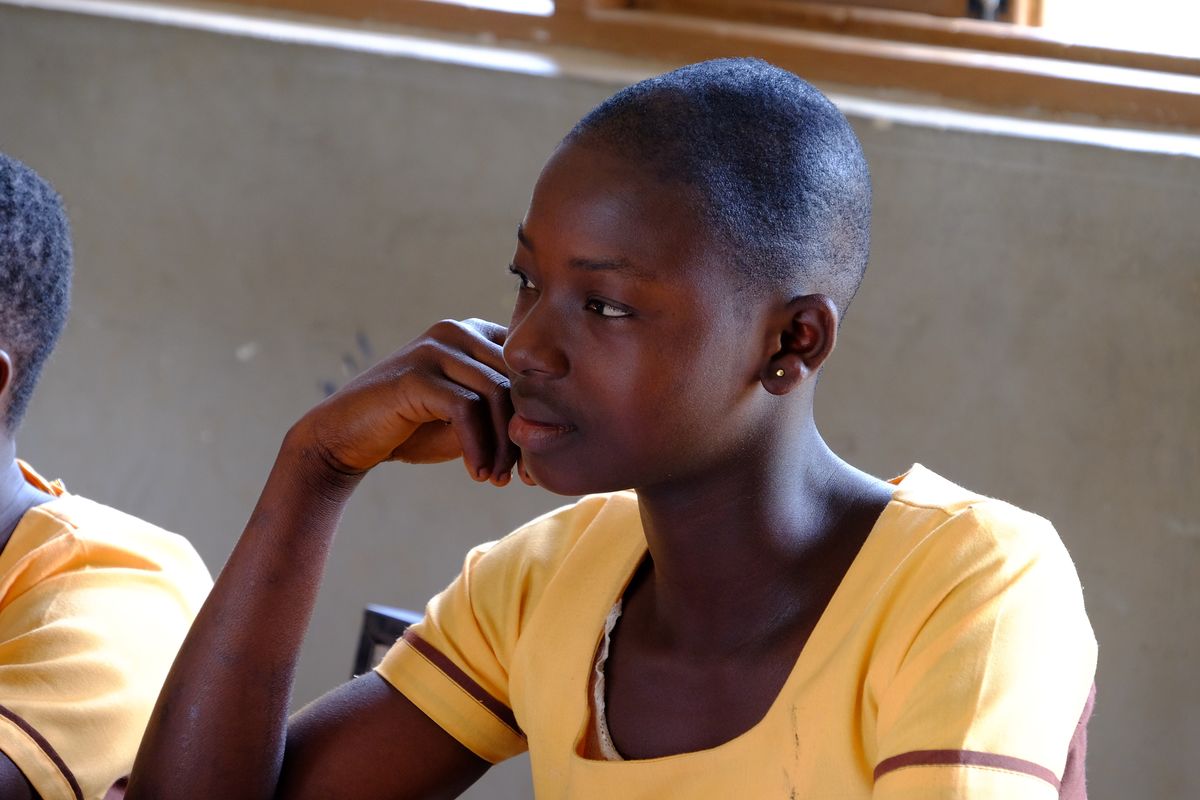Every Day is Girls’ Day: Making a Difference for Girls in Ghana

Since our inception, Women’s Health to Wealth (WHW) and WomenStrong International have worked with teenage girls in the urban center of Kumasi, Ghana’s second largest city and the capital of the Ashanti region. But not until now have we appreciated the depth of the challenges facing girls in and around Kumasi, particularly those in the increasingly impoverished peri-urban areas.
Over the last few years, with rising demographic pressures in Kumasi forcing an accompanying rise in property values in the surrounding areas, the Ashanti Chiefs of these communities have been selling off the arable lands as residential plots. This move has significantly worsened the incomes and conditions for farmer families that, already, had been scraping to get by.
Farmers have taken to the road as traders and are now often away from home, while others have succumbed to alcoholism. But the largest collateral damage of this land pressure has fallen on the children in these communities who, feeling alone, have had to find their own way.
Girls who entered school with dreams of a better life have been lured into unhealthy relationships with unscrupulous teachers and other males, in exchange for something to eat and some clothes. Teen pregnancies and motherhood are on the rise, with outcomes for the young mothers and their children already compromised. In one community, this epidemic poverty has seeped into the schools themselves, which lack toilets and other sanitation facilities, making it difficult for girls with their periods to go or stay in school. Open defecation, rampant flies and an alarming stench emanating from the school premises make going to school, and certainly teaching there, a constant assault on one’s instinct for self-preservation.
To address some of these challenges, Women’s Health to Wealth and WomenStrong have opened 10 new Girls’ Clubs in these communities. We’ve reached more than 200 girls with a curriculum focused on building literacy and leadership skills, self-confidence and a sense of belonging. WHW trained 18 female public school teachers to serve as facilitators in these Clubs and will open another 10 Clubs and train more facilitators before year’s end.
highlight “We need your support to continue this important work. Help by donating now! “]]
To read more about how these Clubs were launched and how they are run, including sample lesson plans, activities and frank observations from WHW’s Director about some of the new challenges facing Ashanti girls, read WHW’s report on our 10 new Girls’ Clubs .

